Signature Pedagogy Series, Part 7: Essential Pedagogies of Reading to Learn (ELA for Established Readers)
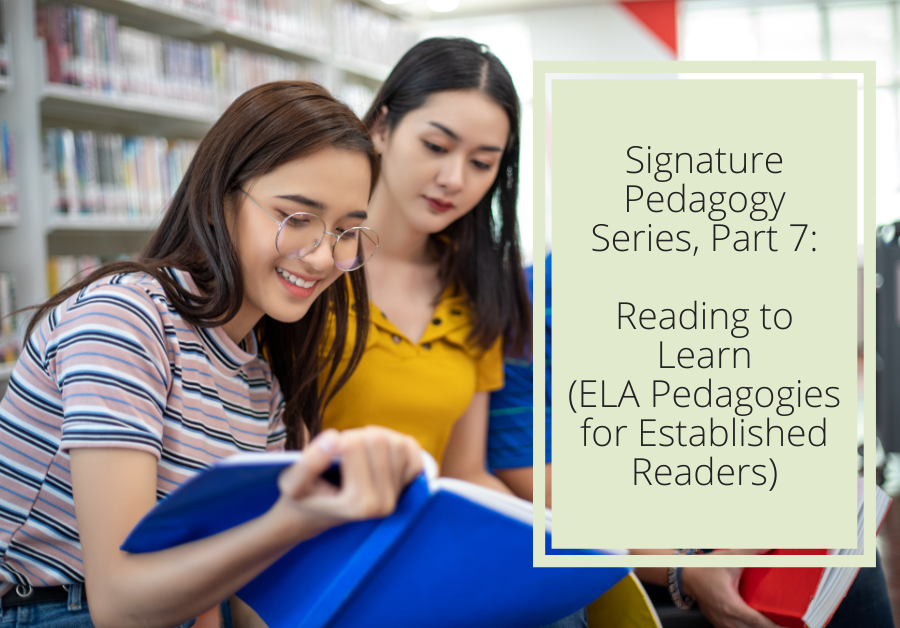
The following article is a part of our Signature Pedagogies in the K-12 Classroom series. “Signature pedagogies,” as defined by Schulman in 2005, are “the types of teaching that organize the fundamental ways in which future practitioners are educated for their new professions” and they include three critical aspects: how to think, perform, and act […]
Signature Pedagogy Series, Part 5: Essential Pedagogies in Social Studies
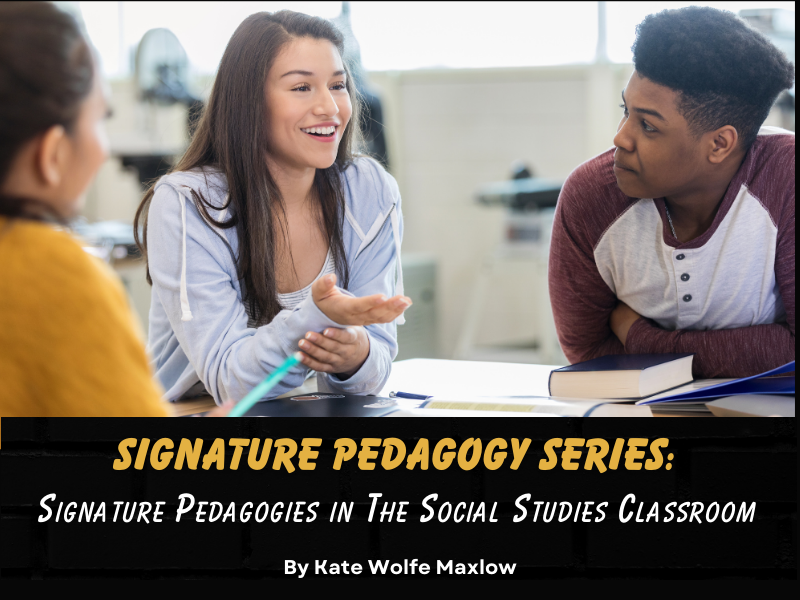
The following article is a part of our Signature Pedagogies in the K-12 Classroom series. “Signature pedagogies,” as defined by Schulman in 2005, are “the types of teaching that organize the fundamental ways in which future practitioners are educated for their new professions” and they include three critical aspects: how to think, perform, and act […]
Signature Pedagogy Series, Part 4: Essential Signature Pedagogies in Math
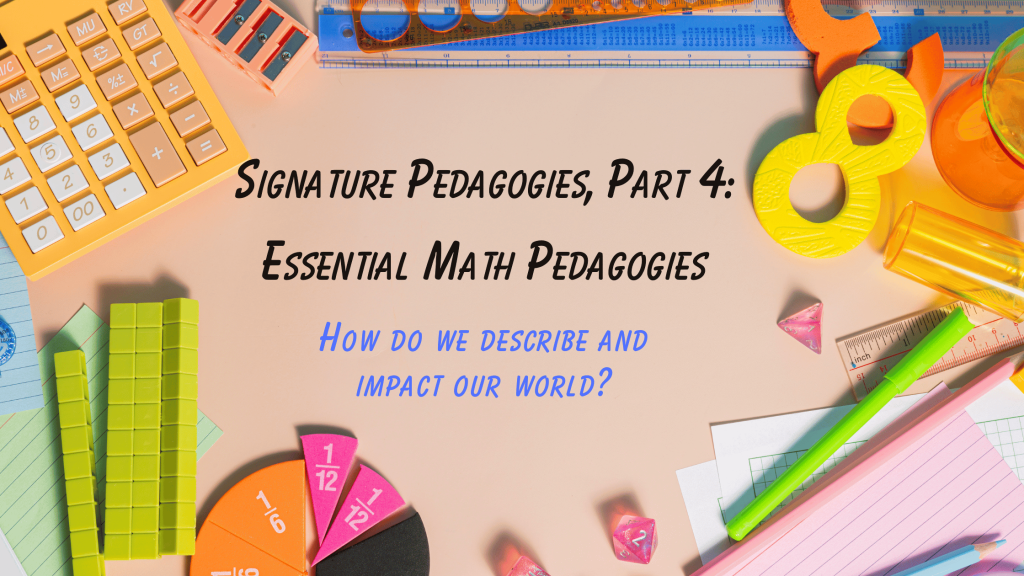
The following article is a part of our Signature Pedagogies in the K-12 Classroom series. “Signature pedagogies,” as defined by Schulman in 2005, are “the types of teaching that organize the fundamental ways in which future practitioners are educated for their new professions” and they include three critical aspects: how to think, perform, and act […]
Signature Pedagogy Series, Part 3: Essential Signature Pedagogies in Science
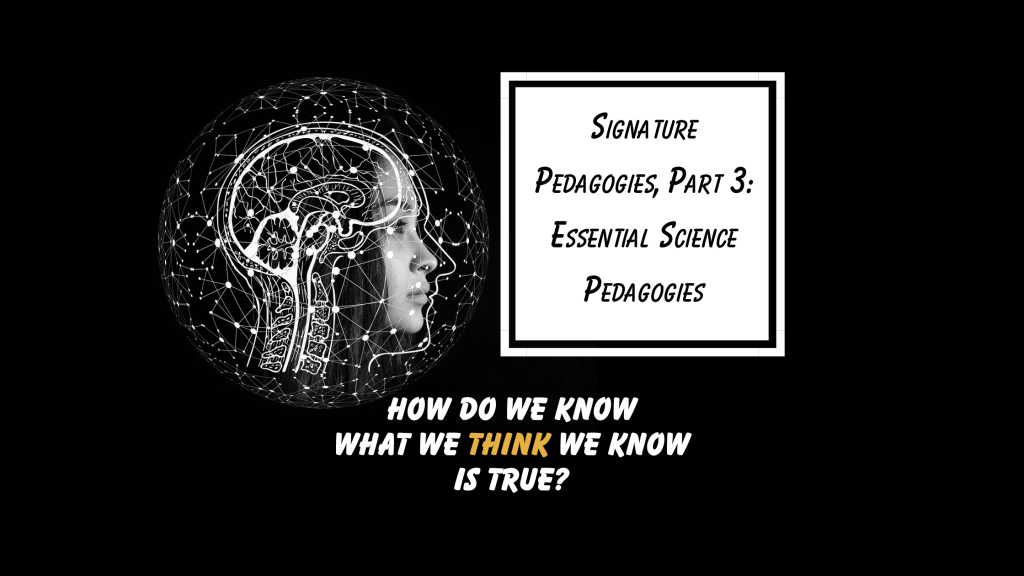
The following article is a part of our Signature Pedagogies in the K-12 Classroom series. “Signature pedagogies,” as defined by Schulman in 2005, are “the types of teaching that organize the fundamental ways in which future practitioners are educated for their new professions” and they include three critical aspects: how to think, perform, and act […]
Signature Pedagogies, Part 2: Types of Curriculum & How They Impact How We Teach
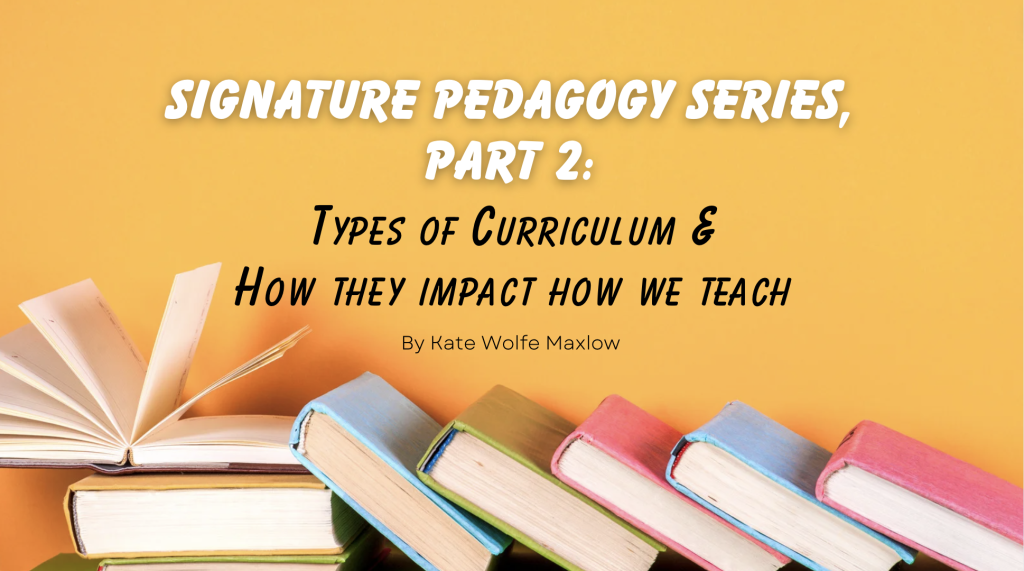
Signature pedagogies are the teaching models and activities that help students develop skills relevant to the discipline that represent the kinds of activities they would do in a profession related to that discipline (Schulman, 2005). For instance: students in science classrooms should be performing experiments using the scientific method; students in social studies classrooms should […]
Signature Pedagogy Series, Part 1: Why “Good Teaching is Good Teaching” Can Be a Harmful Myth
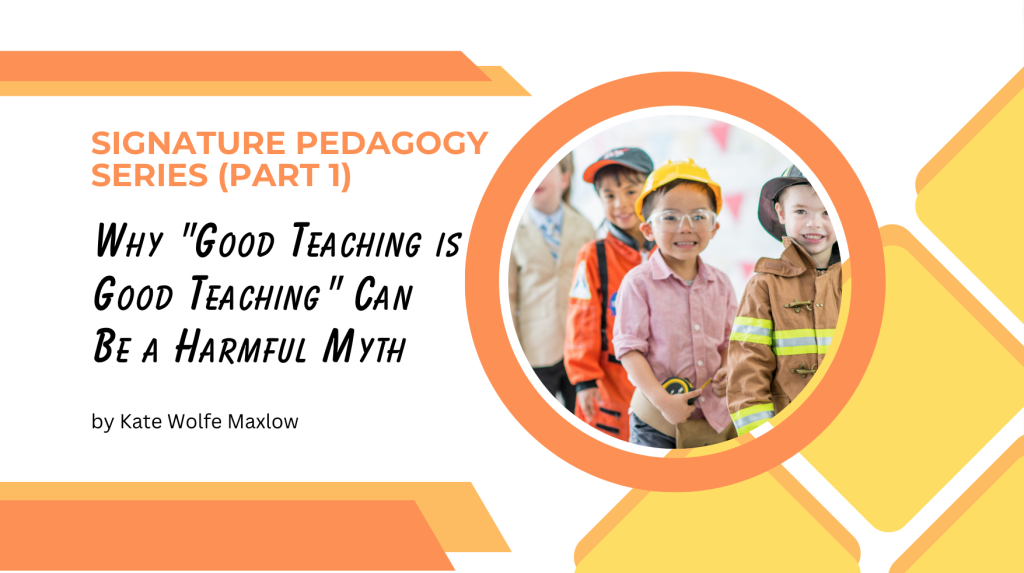
When I hear the phrase “good teaching is good teaching,” I cringe. The statement is not false, but it is also not entirely true—and it can harm our young people by not properly preparing them for life beyond K-12 education. It is frequently made by an administrator justifying why they are able to effectively evaluate […]
